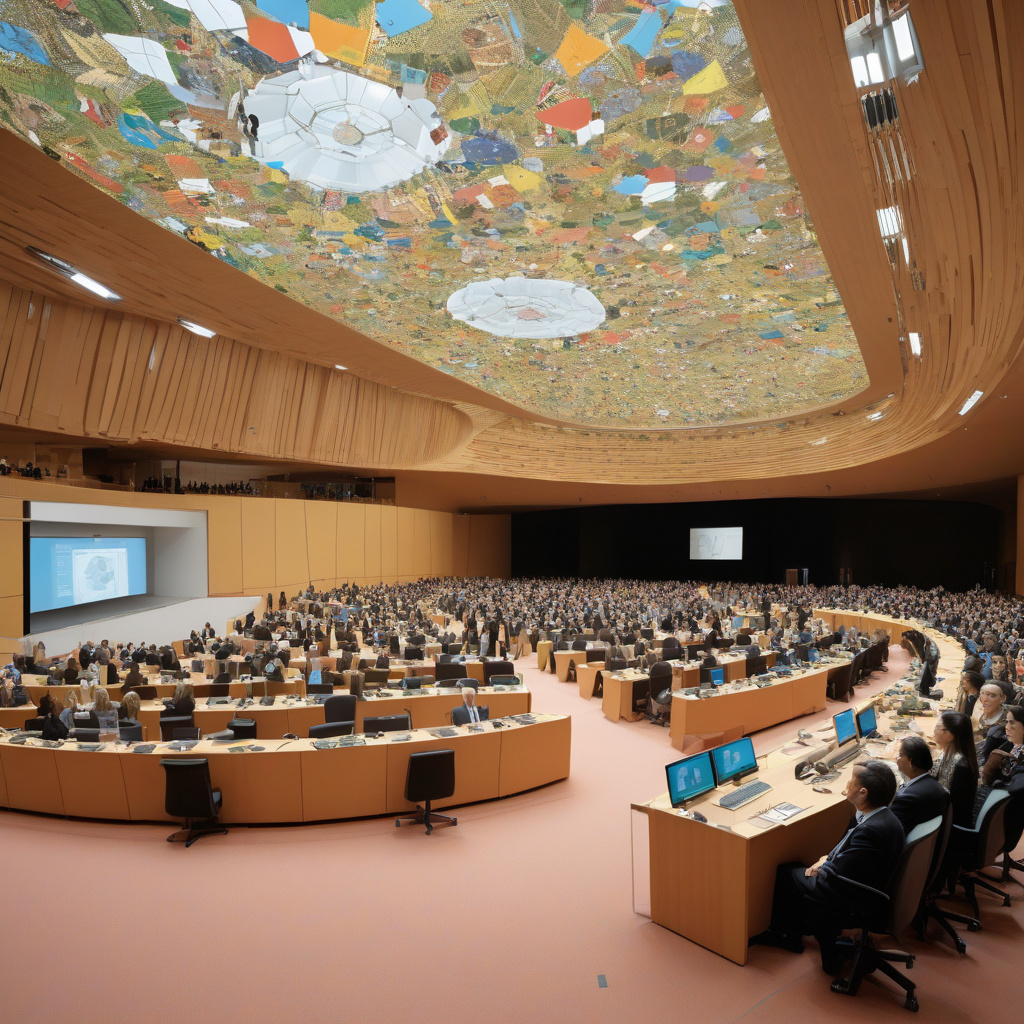UNESCO Advocates for Digital Trust at WSIS+20: Ensuring Platforms Serve the Public Good
In today’s interconnected world, digital platforms play a pivotal role in shaping our perceptions of truth, trust, and crisis. As these platforms continue to influence our daily lives, global leaders are recognizing the urgent need to regulate and monitor them effectively. One such effort is the recent push by UNESCO at the World Summit on the Information Society Forum +20 (WSIS+20) to prioritize digital trust and ensure that these systems work in the best interest of the public.
Digital platforms have become the primary sources of information for billions of people worldwide. From social media networks to online news outlets, these platforms have the power to shape opinions, influence decisions, and even spark societal movements. However, with this power comes great responsibility, as the spread of misinformation, fake news, and harmful content can deepen existing societal divides and erode public trust.
The COVID-19 pandemic has further underscored the importance of digital platforms in disseminating accurate information and combating the spread of false narratives. From vaccine hesitancy to conspiracy theories, the infodemic accompanying the pandemic has highlighted the need for reliable and trustworthy sources of information online. In this context, UNESCO’s advocacy for digital trust at WSIS+20 is crucial in ensuring that these platforms uphold the highest standards of integrity and transparency.
One of the key challenges in promoting digital trust is the sheer volume of content generated and shared on these platforms every day. With millions of posts, articles, videos, and images being uploaded constantly, it can be challenging to monitor and verify the accuracy of each piece of information. This is where technology and collaboration play a vital role in enhancing digital trust.
Artificial intelligence and machine learning algorithms can be leveraged to detect and flag potentially harmful or misleading content in real-time. By automating content moderation processes, platforms can swiftly identify and remove problematic content before it spreads widely. Moreover, partnerships between tech companies, governments, and civil society organizations can facilitate the sharing of best practices and resources to combat misinformation effectively.
In addition to content moderation, transparency and accountability are essential components of building digital trust. Platforms should be transparent about their content moderation policies, data practices, and algorithmic decision-making processes. By providing users with clear information about how their data is collected, stored, and used, platforms can empower individuals to make informed choices about their online interactions.
Moreover, accountability mechanisms, such as independent oversight bodies and regular audits, can help ensure that platforms adhere to ethical standards and regulatory guidelines. By holding platforms accountable for their actions and decisions, stakeholders can trust that these systems are operated in a responsible and transparent manner.
Ultimately, the goal of promoting digital trust is to create an online environment where users feel safe, informed, and empowered. By fostering a culture of transparency, accountability, and integrity, digital platforms can fulfill their potential as engines of positive change and social cohesion. As UNESCO continues to advocate for digital trust at forums like WSIS+20, it is essential for all stakeholders to work together towards building a digital ecosystem that serves the public good.
In conclusion, the issue of digital trust is paramount in today’s digital age, where platforms wield immense influence over our perceptions and behaviors. By prioritizing transparency, accountability, and collaboration, we can ensure that digital platforms serve as trustworthy sources of information and contribute to a more inclusive and informed society.
#UNESCO, #WSIS+20, #DigitalTrust, #Transparency, #Accountability
